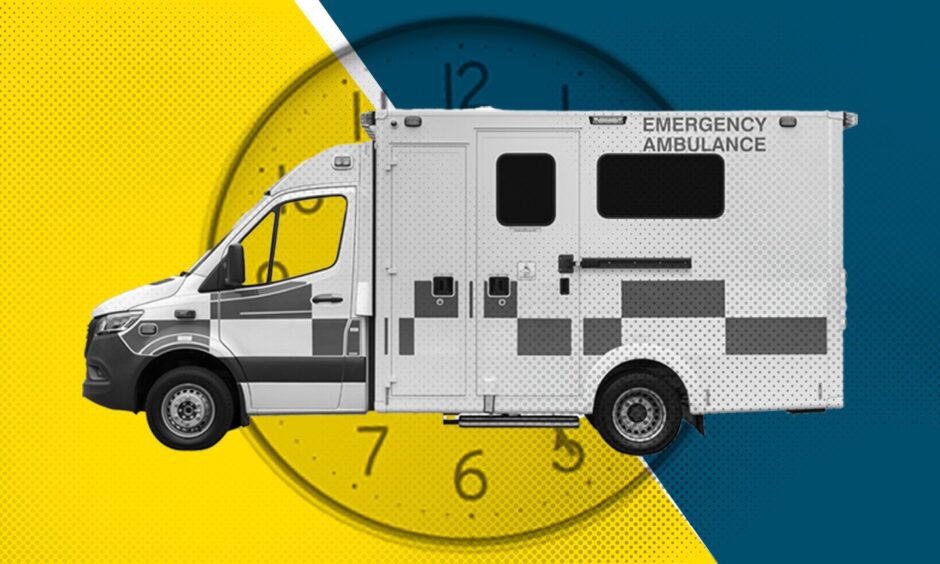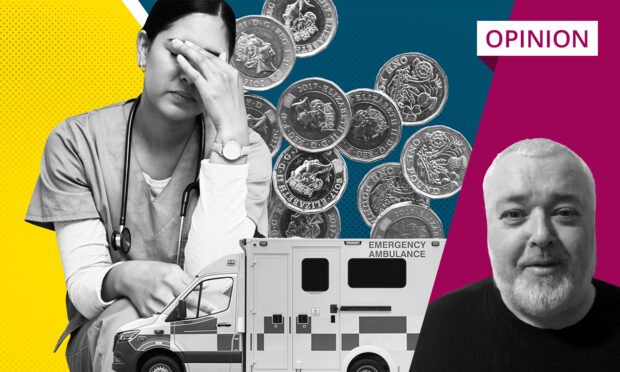It’s an institution that inspires pride while, all too often, provoking anger and frustration.
Few of us would disagree with the suggestion that the creation of the National Health Service in 1948 was one of the greatest achievements of any UK government.
But almost all of us, I’m sure, will have some story about how the NHS failed us or a loved one.
And, as The Press and Journal’s current examination of the service confirms, that sense of dissatisfaction is shared by those working within it.
NHS staff working across the Highlands and Grampian have told this paper of unsustainable pressure, unsafe “corridor care”, and increasing levels of abuse from patients.
Four out of five staff said the health service had got worse since they started working within it.

Although the findings of The P&J’s probe are disturbing, can any of us say we find them in the slightest bit surprising?
Warnings from medics about the parlous state of the NHS are now routine. So, too, are promises from politicians that things will get better.
But all of that is just noise. Neither government ministers nor, I fear, the public is ready or willing to talk seriously about the most obvious solution: investment.
Sure, politicians brag about their undying commitment to the NHS. They tell us they’re ready to be radical, ready to reform.
But as soon as the question of funding comes up, they shut down.
The founding principles of the NHS – that it should be available to all, that treatment should be based on need, alone, and that it should be free – are admirable and very much worth protecting.
But if we are to do that, then we must face harsh realities.
The NHS, today, faces far greater challenges that it did upon its foundation three years after the end of the Second World War.
In those days, the average life expectancy for a man in the UK was 65 for men and 70 for women. Today it’s 79 for men and 83 for women.
The NHS has played the most significant role in ensuring this positive change. Ironically, this success is key to the ever-mounting pressure under which staff are expected to perform.
Faced with criticism of their stewardship of the NHS, successive SNP health secretaries have deflected, claiming Scotland outperforms England and Wales in this or that area.
This deflection has always been pitiful. We are, I think, entitled to judge the quality of the health care we receive without leaning on comparisons with other places.
Provision benefited the wealthiest
In advance of its first Holyrood election victory in 2007, the SNP invested a great deal of time and effort into painting themselves the true protectors of the health service.
But it soon became clear that, in government, the nationalists were more concerned with image than substance.
The much-vaunted free prescriptions policy was supposed to show us that the SNP cared more than any other party about the plight of the most vulnerable.
Behind the spin, however, the truth was that those most in need were already excused prescription charges. The SNP policy simply expanded existing provision to include the wealthiest.
While hundreds of millions of pounds have been shelled out giving pile cream and nit shampoo to the rich, investment in key areas has fallen.
Behind the SNP’s confident rhetoric about restoring the NHS to the rudest health lay – and continues to lie – a deep fear of reform. The consequence of this inaction is a health service that becomes less fit for purpose with each passing day.

Only money can make NHS work for everyone again
It is abundantly clear that the improvements our NHS so desperately needs will not be made without serious investment. And that serious investment cannot be made without either cuts to others services or increases in income tax.
If more cash cannot be found then the alternatives are either to allow the NHS to decline until the point it collapses completely or to introduce charges for some patients, perhaps through health insurance schemes.
Of course, as soon as the grubby matter of money is raised, we can expect MSPs from both the SNP and Labour to scream bloody murder about “privatisation”, closing down the debate.
We cannot go on like this and expect an NHS that works for everyone. Politicians must be honest about the financial needs of the service and we, its users, must accept that the health service we would like is not possible without compromise and investment.
Are we ready to have this vital discussion? If we’re not, then we’ll continue to have a failing NHS and we’ll all bear some responsibility.
Euan McColm is a regular columnist for various Scottish newspapers


Conversation